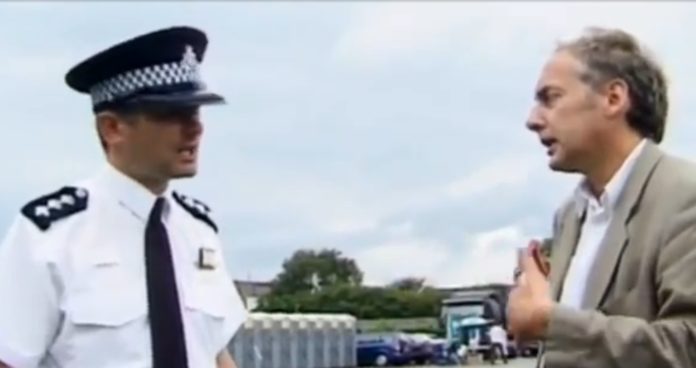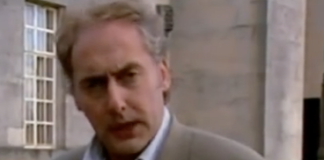- ‘Ch-ch-changes’ copyright D. Bowie - 2nd February 2026
- I predict another riot… - 30th January 2026
- Force for change - 29th January 2026

During 23 years with the BBC, and 40 years in journalism (when he was trained to use simple language, avoiding jargon), our Editor Welshman Phil Parry has always had to deal with the police, as well as sometimes their ineptitude, and this has now been thrown into sharp relief by news one force may have failed to act when confronted with evidence that King Charles could have bestowed an honour for a donation of cash to his favoured charity.
Earlier Phil has described how he was helped to break into the South Wales Echo office car when he was a cub reporter, recalled his early career as a journalist, the importance of experience in the job, and making clear that the‘calls’ to emergency services as well as court cases are central to any media operation.
 He has also explored how poorly paid most journalism is when trainee reporters had to live in squalid flats, the vital role of expenses, and about one of his most important stories on the now-scrapped 53 year-old BBC Wales TV Current Affairs series, Week In Week Out (WIWO), which won an award even after it was axed, long after his career really took off.
He has also explored how poorly paid most journalism is when trainee reporters had to live in squalid flats, the vital role of expenses, and about one of his most important stories on the now-scrapped 53 year-old BBC Wales TV Current Affairs series, Week In Week Out (WIWO), which won an award even after it was axed, long after his career really took off.
Phil has explained too how crucial it is actually to speak to people, the virtue of speed as well as accuracy, why knowledge of history and teaching the subject is vital, how certain material was removed from TV Current Affairs programmes when secret cameras had to be used, and some of those he has interviewed.
He has disclosed as well why investigative journalism is needed now more than ever although others have different opinions, how the coronavirus (Covid-19) lockdown played havoc with media schedules, and the importance of the hugely lower average age of some political leaders compared with when he started reporting.
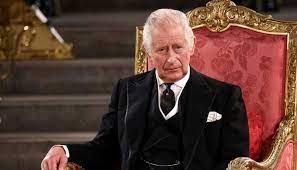
There are two institutions which are trusted by most people in the UK – the police and the monarchy.
However, when there are major questions about the behaviour of BOTH, then there really could be trouble. Yet, it seems, just this has happened.
In 2021 the Metropolitan Police (Met) were alerted to a letter which had been sent to a UK newspaper from a trusted aide to Prince (as he then was) Charles explicitly linking the donation of money to one of his good causes, with the award of an honour to the Saudi businessman Mahfouz Marei Mubarak bin Mahfouz.

Such a link could be an offence under the Honours (Prevention of Abuses) Act 1925. The letter also offered help with a citizenship application, which appears to border on the corrupt.
The prosecution, however, was dropped and we have no knowledge as to whether key players (including the now KING Charles) were even interviewed.

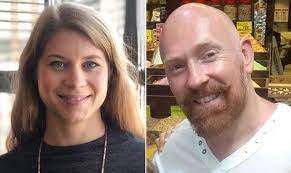
All of this seems bizarre in the extreme, as the evidence of a possible crime was presented to the police on a plate.
But they have hit the headlines many times in the past so perhaps we shouldn’t be surprised, and there is growing concern that it is almost impossible to get rid of rogue officers. A review into the process for sacking them was launched this year after the murder of Sarah Everard, by the Met’s Wayne Couzens, and the jailing of his colleague, prolific rapist David Carrick. It is believed around 2,000 police officers who are still in the ranks despite being accused of crimes including sexual assault and corruption could be dismissed under new measures being planned. Those who are now retired will not be touched, and may only be subject to the cumbersome legal process.
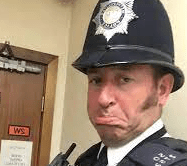
However, as proclaimed by one person on social media who has been badly affected by the actions of the police (Mike O’Brien) as a victim of one of several miscarriages of justice they have been responsible for: “It isn’t just the Met”.
Mr O’Brien, who is now in his fifties, was jailed wrongly in 1988 for the killing of Cardiff newsagent, Phillip Saunders. He is now calling for a full judicial inquiry into the number of high-profile miscarriages in the 1980s, ’90s, and 2000s, for which South Wales Police (SWP) are responsible. They include: The Cardiff Three (Five), The Cardiff Newsagent Three, The Darvell Brothers, Jonathan Jones (The Tooze Murders), as well as Annette Hewins.
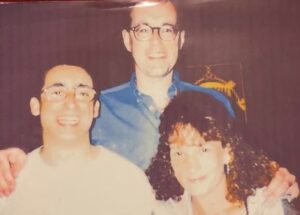
Yet this shameful list does NOT have on it all those innocent people, who were convicted of less important crimes than murder, but who now have a record which will affect them for the rest of their lives, and there is a powerful argument for getting rid of SWP completely.
Pressure is now mounting in support of Mr O’Brien, with several important events also backing his campaign.
An Early Day Motion (EDM) in the UK Parliament has been tabled and was signed by several MPs, which declared: “…this House notes the series of cases since the 1980s investigated by South Wales Police force that resulted in wrongful convictions; further notes the devastating impact that wrongful accusation and imprisonment can have on people subject to miscarriages of justice; expresses concern that many of the perpetrators of these crimes have yet to be found; and calls on the Ministry of Justice to organise a judicial inquiry into all miscarriages of justice that took place between 1982 and 2016”. The motion was immediately signed by three Plaid Cymru (Plaid) MPs, including the party’s leader in the House of Commons (HoC), who tabled the motion, Liz Saville-Roberts.

A Media Conference (MC), was held last year (at which I spoke) also demanding the judicial inquiry (it has since been refused, but as the EDM, and the recent news show, there are now increasing calls to hold one). Following the MC some then marched to the Welsh Parliament/Senedd Cymru (WP/SC), and Welsh Government (WG) buildings, with a number of politicians backing a Statement of Opinion to support the calls for an inquiry. A rally was also held on July 20 outside Cardiff Crown Court.
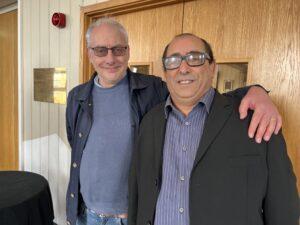
At the MC, I said to the audience that I was regularly approached by solicitors during the 1990s, who said the police were doing bad things, and that something had to be done. On one occasion I was told to put away my notebook because I was informed that no record should be made of the conversation. I described, too, how other forces had been put in ‘special measures’ (including the Met), but that this was the least that should be done with SWP. I stressed, as well, the disturbing fact that areas with a greater population, have FEWER police forces. “It is ridiculous that in a population of 3.1 million people we in Wales have FOUR forces”, he said: “Scotland is much bigger, but only has ONE. London has almost nine million people yet has just TWO . Think of the public money that is wasted duplicating resources, to pay fat salaries to all those Assistant Chief Constables, and Chief Constables!”. The MC was organised by Mr O’Brien, who talked movingly about how his fitness had been badly affected after he spent 11 years inside prison, for a crime he did not commit. He told The Eye: “My health has been ruined, and there has been long-lasting damage. My miscarriage of justice case has caused a huge family rift”.
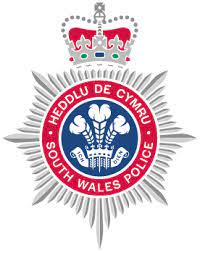
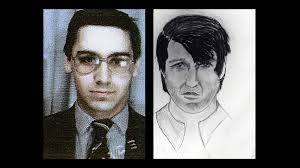
Another who spoke emotionally of what had happened to him, was John Actie, one of the Cardiff Three/Five. He was accused of involvement in the murder of 20-year-old Lynette White, who was viciously killed in James Street in what is now known as Cardiff Bay. Three BLACK men had been convicted of the murder (although FIVE, including Mr Actie, were put on trial), when one WHITE man (Jeffrey Gafoor) was finally caught years later through DNA analysis. He confessed to carrying out the terrible 1988 murder, and even apologised, through his barrister, to the others who had been incorrectly jailed.
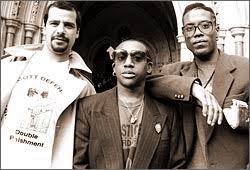
The five innocent men, were arrested in December 1988 after detectives had been on the case for 10 months, and were pursuing a suspect seen nearby (who looked EXACTLY like Gafoor), minutes following the murder. But when SWP changed the investigating team, and pressure mounted to make an arrest, attention turned to locals. Despite no forensic evidence connecting the five to Ms White’s murder they were taken in. Tony Paris, Yusef Abdullahi, and Stephen Miller were found guilty in 1990 of the murder, and spent more than two years serving prison sentences having spent the same time on remand, while cousins John and Ronnie Actie were acquitted after being in custody since their arrest. False eyewitness statements, coerced confessions, and more were used in the police ‘investigation’. However on appeal in 1992 the taped interviews with Mr Miller, who had a mental age of 11, were deemed an example of inappropriate interrogation for reference in future cases, such was their intimidating and coercive nature.
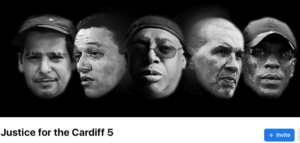 A website highlighting their case has been launched called “Justice for the Cardiff 5”. It exposes the failings by SWP investigating officers, and bolsters demands for a judicial inquiry.
A website highlighting their case has been launched called “Justice for the Cardiff 5”. It exposes the failings by SWP investigating officers, and bolsters demands for a judicial inquiry.
Several programmes have been broadcast looking at the events in which the police played such a major part, and a number are in production now. Early last year, another was transmitted (although it is still available to be streamed) examining Mr O’Brien’s story in detail. The promotional material before one of them, proclaimed: “Episode One Monday 23rd May at 9pm Raphael Rowe delves into the brutal murder of Cardiff newsagent Phillip Saunders in 1987. The episode examines the investigation that led to the conviction of three innocent men, which resulted in their wrongful imprisonment. The episode reveals shocking police threats and coercion that led to the arrest and incarceration of Michael O’Brien, Ellis Sherwood and Darren Hall. After the men had spent more than a decade behind bars, a court appeal quashed the original verdict, but the unsolved case continues to haunt the city. Plus, for the first time ever, the victim’s sister and nephew break a 35-year silence and reveal exclusive insights into the case”.
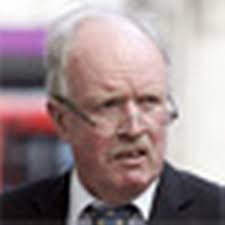
Adding to the woes of SWP, and stressing the EDM as well as the recent worrying information, is that a former head of CID was recently jailed. A highly complex sting operation trapped one time Detective Chief Superintendent Phil Jones, which involved the bugging of cars, and deploying of decoy ‘clients’ who made out they wanted to pay for information. It climaxed in Mr Jones admitting to paying an ex-colleague to supply him with information from police databases, after he retired from SWP to run a private investigations agency in 1997.
Even before these terrible details emerged, Sky documentaries were broadcast, called Murder in the Valleys (MITV), looking into the horrific Clydach murders in 1999, when four people (Mandy Power her elderly disabled mother Doris, and two young children) were brutally beaten to death. This, too, has been put under the microscope by what has happened, despite the fact it is not (in theory) a miscarriage of justice case, although the man convicted of them (David ‘Dai’ Morris) died in jail still protesting his innocence. They were nominated for two awards at the BAFTA Cymru ceremony, including one for best Factual Series.
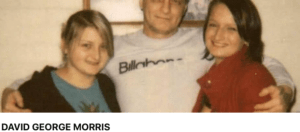
Another television programme late last year on 5Star (which pretended to be looking into ‘cold cases’), though was VERY different. and incurred the wrath of many close to what had happened. 5Star is a free-to-air television channel owned by Paramount Networks UK & Australia and a sister to Channel 5, which specialises in documentaries. One of the daughters of Mr Morris, Janiene Marie O’Sullivan, publicly declared to her dedicated website group: “I am finding it difficult to put into words how it made me feel….Basically it was a whole hour of Martin Lloyd-Evans (who led the investigation into the Clydach Murders) talking rubbish!…South Wales police have done themselves no favours again with this one”.
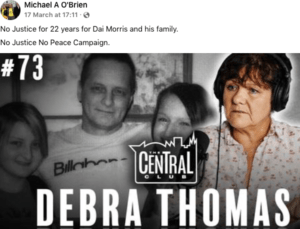 Debra Thomas also said on the site: “Can you believe the utter verbal diarrhoea Martin Lloyd was spouting in that cheap channel 5 program…I also know the journalist is on this group so I hope and pray she gets to read this.” And: “What disgraceful journalism!! They should hang their heads in shame”. The website Mrs Thomas helped set up, along with her niece, questions her brother’s guilt and has almost 31,000 members. On it she published a reply from Channel 5 to her complaint about the programme, but above the letter she wrote: “What research did they do????”.
Debra Thomas also said on the site: “Can you believe the utter verbal diarrhoea Martin Lloyd was spouting in that cheap channel 5 program…I also know the journalist is on this group so I hope and pray she gets to read this.” And: “What disgraceful journalism!! They should hang their heads in shame”. The website Mrs Thomas helped set up, along with her niece, questions her brother’s guilt and has almost 31,000 members. On it she published a reply from Channel 5 to her complaint about the programme, but above the letter she wrote: “What research did they do????”.
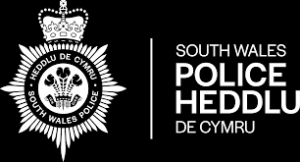
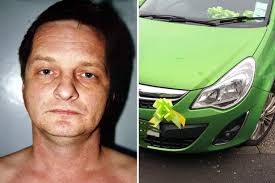
The successful prosecution case against Mr Morris was that he had gone to Ms Power’s looking for sex, high on drink and drugs, been spurned and beat the entire family to death, leaving his chain there in the process. Yet the evidence suggested Doris had been killed first, NOT her daughter, when presumably it would have been the person doing the spurning who would have died FIRST!
Mr O’Brien appears on MITV saying that he believes the conviction of Mr Morris IS in fact another miscarriage of justice. He told the MITV documentary-makers: “When I was released from prison I remember…saying ‘I’m going to be South Wales Police’s worst nightmare for what they did to me’, and I meant every word of it”.

In a formal interview for MITV (they wouldn’t do one with ME!), Assistant Chief Constable (ACC) of SWP, David Thorne, made a startling admission, about the mistakes that were made by the police in the earlier miscarriages of justice. During filming for the programme Mr Thorne appeared on, a forensic review found traces of DNA on a sock which it is believed was used to hold the murder weapon, that were “more likely than not” to have come from Mr Morris, and SWP trumpeted the finding. They effectively said: ‘We know we got it wrong in the past, but this time is different. Trust us’.
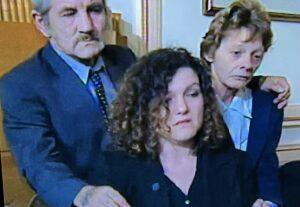
Yet a long-running campaign has been launched to establish his innocence, and after the first trial when Mr Morris was convicted, his sister Debra gave a tearful press conference with her parents when she stressed her belief that he was NOT guilty. She said: “He just didn’t do these things…they’ve got the wrong man”. ACC Thorne, though, insisted on MITV, that Mr Morris was the RIGHT man, but acknowledged that mistakes had been made in previous police inquiries. He proclaimed: “It’s safe to say we got it wrong (in the past). We absolutely got it wrong. (There were) HUGE errors in the way investigations were conducted (but) we HAVEN’T found that in this case. This is not a miscarriage of justice”.
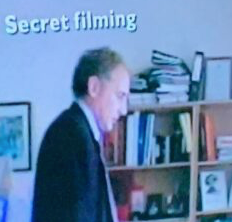
However I had made a BBC Panorama television programme about the shocking Clydach Murders a few years after they had been committed, and he was the first to question the police actions during THIS investigation too. As he said in the opening of the programme: “One police force in Britain has a disturbing record of locking up the wrong people in murder cases”.
During MITV, Mr Evans (who mixed up ‘subdued’ with ‘sublime’ on camera!) is questioned about the apparent mistake of not releasing to the public a witnesses E-Fit constructed soon after the murders, which, it said, had a 90 per cent likeness. He replies that because the man seen was carrying a bag, and it was believed the killer did not have one, it was not put out.

Mr Evans said: “I didn’t think it was relevant”, but the E-Fit matched almost exactly the face of the first senior police officer on the scene, Inspector (at the time) Stuart Lewis, who (against all procedure) had only stayed there a matter of minutes, or that of his identical twin brother (another police officer, Sergeant [also at the time] Stephen Lewis, whose wife was having a gay affair with one of the victims). Inspector Stuart Lewis, had changed his shift to be on that night, however at crucial hours during the murders his whereabouts were unknown. He was driving a red Peugeot diesel, and a car similar to this was spotted near the murder scene. So to say the E-Fit was ‘not relevant’, appeared ridiculous, to critics of the police.
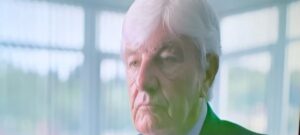
In the MITV films Mr Evans’ boss as the then head of SWP CID, Wynne Phillips, also said something incredible: “We can’t manufacture evidence”. However events before the murders, showed that SWP have done EXACTLY that. To take just one of those cases (in which I was intimately involved, because I had made ANOTHER programme questioning THAT conviction [The Cardiff Newsagent Three]), the police MANUFACTURED (as Mr Phillips said they DIDN’T do) an overheard ‘confession’ between the young men they had arrested, when an admission was effectively made to the murder of the newsagent, and they presented before the court ‘EVIDENCE’ that the group had run from the scene, yet one of the three had bad legs and couldn’t run at all!

But then ‘evidence’ of a possible crime, doesn’t appear to worry the police if it concerns King Charles!
Details of the journalism by Phil (including stories involving police behaviour), during which he was gripped by the rare neurological condition Hereditary Spastic Paraplegia (HSP), have been released in a major book ‘A GOOD STORY’. Order it now!







